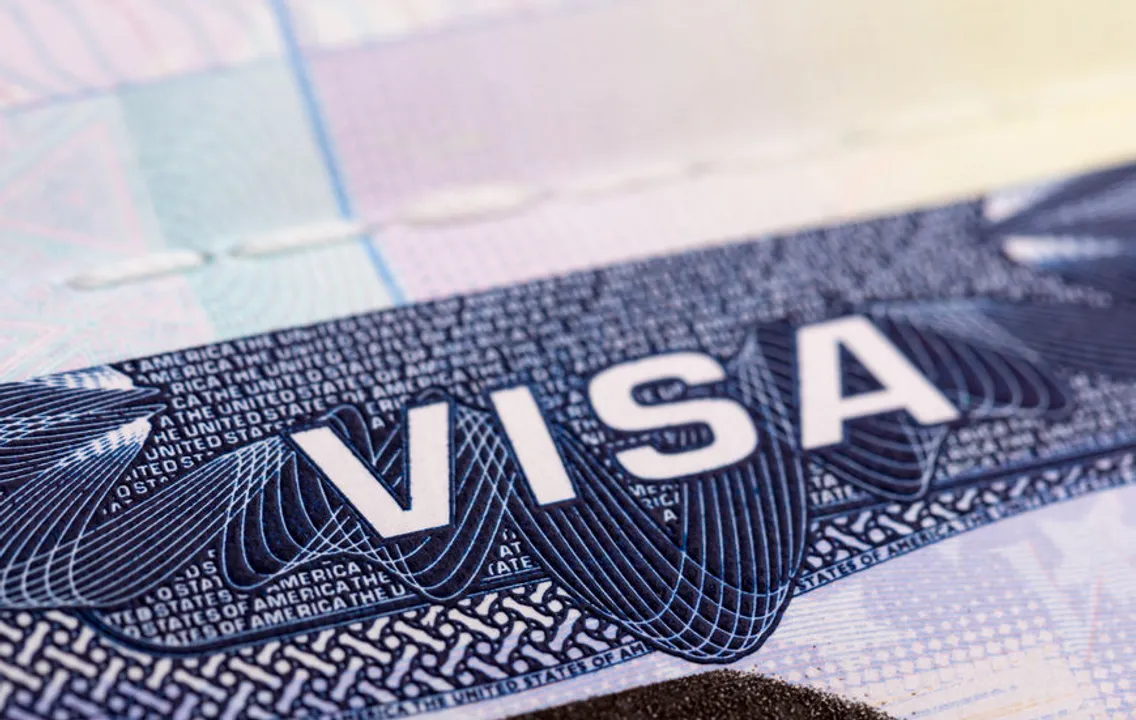Memorandum and Information on Physician Immigration: J-1 Waiver and H-1B Visas

Sergiy Tryapitsyn/123RF.com
Physicians that are participating in U.S. medical school residency programs but have graduated from medical school abroad are generally known as Foreign Medical Graduates (FMGs). FMGs come to the U.S. to obtain medical training and are usually on either a J-1 visa or an H-1B visa. Many health centers have the ability to apply for a J-1 visa waiver and the subsequent H-1B visa to employ these physicians.
J-1 Visa and Waivers
When a foreign national has graduated from medical school abroad and joins a residency program in the United States, they will usually apply for a J-1 visa. After residency, most J-1 physicians are required to return to their home country after completing medical residency or fellowship – this is known as the 2-year home residency requirement. In order to avoid this, J-1 physicians will apply for a J-1 visa waiver. The hiring organization can apply for a waiver many ways, but the most common (as it applies to recruiters) are the Conrad 30 Waiver, Health and Human Services Waiver (HHS), Appalachian Regional Commission, and Delta Regional Authority. (**Veterans Administration usually does not work with recruitment agencies**) All waivers require the location of the practice to be in a Health Professional Shortage Area (HPSA), Medically Underserved Area (MUA), Medically Underserved Population (MUP), or Mental HPSA – for psychiatrists. Once a J-1 waiver is granted, the sponsoring facility (employer) must apply for an H-1B visa. To see if the work location qualifies – go here and type in the address: https://datawarehouse.hrsa.gov/tools/analyzers/geo/ShortageArea.aspx.
(A) Conrad 30 Waiver
Conrad 30 waivers are available to primary care and specialist physicians (occasionally). The Conrad 30 program only allows states to accept up to 30 medical students per year. To apply for this type of waiver, the application must be submitted to the state’s healthcare agency. Requirements vary from state to state – check the website for deadlines for applications. Usually applications for a 2018 J-1 physician start in September or October. Application costs vary from state to state. Some states specify what types of HPSAs can be used (geographic, population, facility-based).
(B) HHS Waiver
HHS waivers are only for primary care physicians. Work location must have a HPSA score of 7+ and:
- a) Be a health center as defined under Section 330 of the Public Health Service Act, and receiving a grant from the U.S. Health Resources and Services Administration
- b) A rural health clinic as defined under Sections 1102 and 1871 of the Social Security Act
- c) A Native American/Alaskan Native tribal medical facility as defined by the Indian Self-Determination and Education Assistance Act (P.L. 93-638)
Federally Qualified Health Clinics (FQHCs) can apply for the HHS waiver, which has no limit on the number of applications per fiscal year. More Info: https://www.hhs.gov/about/agencies/oga/about-oga/what-we-do/visitor-exchange-program/supplementary-b-clinical-care.html
(C) Appalachian Regional Commission (ARC)
Applicable to the following states: Alabama, Georgia, Kentucky, Maryland, Mississippi, New York, North Carolina, Ohio, Pennsylvania, South Carolina, Tennessee, Virginia and West Virginia
More Info: https://www.arc.gov/program_areas/ARCARCFederalCoChairsJ1VisaWaiverPolicy.asp
(D) Delta Regional Authority (DRA)
Application to the following states: Alabama, Arkansas, Illinois, Mississippi, Missouri, Kentucky, Louisiana and Tennessee. $3,000 Application Fee. More Info: http://dra.gov/initiatives/promoting-a-healthy-delta/delta-doctors/how-to-apply/
(E) Other Option: Hardship or Persecution Waivers
Can apply for one of the above AND one of these waivers. Situation specific – please contact me to discuss.
H-1B Visa
Cap-Subject H-1B
H1B visas are an employer-sponsored nonimmigrant visa that allows persons who are not citizens or permanent residents of the U.S. to work in a specialty occupation for up to six years. The H-1B visa program accepts up to 65,000 individuals plus 20,000 extra for beneficiaries who hold a master’s degree per fiscal year via a lottery system. The lottery, which happens every year on around April 1st, allows H-1B employers to file visa petitions for their workers. If chosen, the worker can begin work on October 1st of the same year. Physicians are included in the total of 85,000. H-1Bs are limited for 6 years but can be prolonged if there is a pending or approved green card application. This H-1B visa quota is reached very quickly, often within 1-2 weeks. The lottery system is a random selection of H-1B petitions through the USCIS’ computer program.
Cap-Exempt H-1B
The cap exempt visa petition allows certain non-profits to be excluded from the program-1B lottery mentioned above. To apply for the cap-exempt visa petition, the affiliated or related nonprofit entity must meet one of the four requirements:
1) Be connected to or associated with an institution of higher education through shared ownership or control by the same board or federation
2) Be operated by an institution of higher education
3) Be attached to an institution of higher education as a member, branch, cooperative, or subsidiary
4) Have entered into a formal written affiliation agreement with an institution of higher education that establishes an active working relationship between the nonprofit entity and the institution of higher education. The agreement must ensure that a fundamental activity for the non-profit entity directly contributes to the research or education mission of the institution of higher education.
NOTE: If a physician was previously on a H-1B visa based on a J-1 waiver and has completed the 3-year requirement, he or she is permanently exempt from the cap. In some instances an H-1B visa holder may be able to transfer positions (more information below).
Timeline for Hiring J-1 Visa Holders
- Recruit, interview and find the right candidate (Time lapse varies)
- Submit employment contract to attorney to make sure it complies with immigration guidelines (Estimated Time: 1-3 Days).
- Receive employment contract, attorney then begins to gather documentation for waiver (Estimated Time: 2-6 Weeks).
- Attorney submits J-1 waiver and waits for response (Estimated Time: 1-8 Weeks).
- Attorney submits U.S. Department of State application (Estimated Time: 1-2 Weeks).
- USCIS approves waiver (Estimated Time: 8-16 Weeks).
- Attorney organizes documents and files H-1B petition. (Estimated Time: 2-4 Weeks)
- Upon approval, provider begins employment (Estimated Time: 2-16 Weeks).
TOTAL TIME: Approximately 4 – 12 Months
H-1B Visas (NOT BASED ON J-1 WAIVER) and Change in Employers and Start Dates
H-1B cap-subject visa holders should be able change to any employer willing to sponsor them. Generally, H-1B cap-exempt visa holders may only change to employers who can prove they are cap-exempt (above). Various factors come into play when a cap-exempt visa holder wants to switch employers and positions. Contact my office to discuss the specifics. If physicians are currently on a H-1B visa and would like to transfer employment, they may do so upon the employer filing the H-1B petition and receiving a receipt notice from the USCIS. These physicians (or any H-1B nonimmigrant for that matter) can begin work before a final adjudication from the USCIS. However, if the physician has never held a H-1B before (i.e. J-1 visa waiver physician) then the physician must wait until he or she receives the H-1B approval from the USCIS. If the J-1 waiver physician that holds a H-1B wants to complete the commitment at a new facility – contact my office for eligibility.
NOTE: The information in this document is not meant to provide legal advice or to substitute for the guidance, counsel, or advice of legal counsel. This guide touches only on clinical physicians and not academia or researchers. Please contact Sid Chary at the Chary Law Firm with any questions.
Follow this link to browse our list of currently available H-1B physician jobs. Please read all job descriptions carefully as not every job in this list will be open to H1-B visa holders.
Follow this link to to browse current J-1 physician jobs. Again, please carefully read all job descriptions as some jobs in this list may not be open to J-1 candidates.
Related Posts
